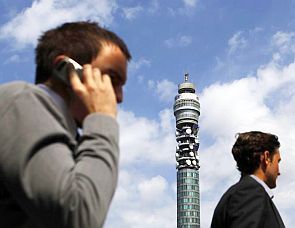The Department of Telecommunications (DoT) has decided to retain a clause in the proposed mergers and acquisitions (M&A) guidelines, which would make telecom operators pay for the spectrum beyond a prescribed limit after merger. While the draft M&A policy for the telecom sector has been revised a few times over the past few months, DoT has not made any major change in the guidelines. The M&A guidelines are expected to be finalised before the next round of auction in January 2014.
While the draft M&A policy for the telecom sector has been revised a few times over the past few months, DoT has not made any major change in the guidelines. The M&A guidelines are expected to be finalised before the next round of auction in January 2014.
According to a recent DoT note, the acquiring company should pay the difference between the entry fee and the auction-determined price of spectrum for spectrum beyond 4.4MHz in GSM band and 2.5MHz in CDMA band, if the spectrum was originally acquired by paying the entry fee.
The differential should be paid to the government at the time of merger.
However, there will not be separate charges for spectrum acquired through auctions conducted from 2010. The merged entity after merger will be entitled to hold only one block 4.4MHz of spectrum in GSM band and 2.5MHz in CDMA band for the entry fee the companies have paid earlier, the DoT note said.
This will benefit incumbent players such as Bharti Airtel and Vodafone, if the merger happens between two incumbent operators which had got spectrum by paying entry fee. In such cases, the merged entity will be able to retain 4.4MHz spectrum for the entry fee paid earlier.
If a new operator, which has bought spectrum through auction, buys an incumbent operator which had paid entry fee, then it will have to pay the differential price for 4.4MHz.
This means, for new operators the cost of entire spectrum holding is auction-determined. In case of two incumbents merging, the companies will get the benefit of retaining 4.4MHz spectrum at a much lower cost.
Also, if two operators that have acquired spectrum through auction get merged, they will not need to pay anything extra.
GSM operators have long been lobbying with the government against such a proposal. “Any attempt to impose significant additional cost of M&A transaction would discourage M&A and consolidation, and administratively acknowledged spectrum is a part of M&A transaction to that extent, a tax of about 20 per cent may be imposed,” Rajan Mathew, director-general
He also proposed that the resultant entity after merger should not have more than 35 per cent market share.
While DoT had mentioned in the draft M&A policy that it may consider merger proposals, which could result into more than 35 per cent market share on a case-to-case basis, the same has been removed in the latest note.
However, the cap for spectrum holding for the merged entity will be 25 per cent of the total spectrum assigned. Also, 50 per cent of the spectrum assigned in a given band under 900MHz and 1,800MHz bands and the ceiling for the 800MHz band will be 10MHz, it noted.
After the merger of 3G and broadband wireless access (BWA) spectrum holders, the resultant entity will be allowed to retain only one block of spectrum. The proposed norm will impose severe restrictions for the GSM operators for possible mergers.
The top three GSM operators - Bharti Airtel, Vodafone India and Idea Cellular - together hold more than 50 per cent market share, according to data by the Telecom Regulatory Authority of India (Trai).
In the latest note, DoT has also maintained its stance that companies will have to surrender spectrum after merging if total holding of the resultant entity crosses the prescribed limit set by the government.
For this, companies will get one year, and the merger of licences will be restricted to the same service area. The merged entity will also have to migrate to the new Unified Licensing regime. Companies will get one year to transfer various licences in different service areas in case of a merger or an acquisition.
The note has not mentioned anything on permitting spectrum sharing or trading, something the industry is awaiting for a long period.
Trading and sharing of spectrum already has in-principle approval of the Telecom Commission, following the recommendations of Trai.






